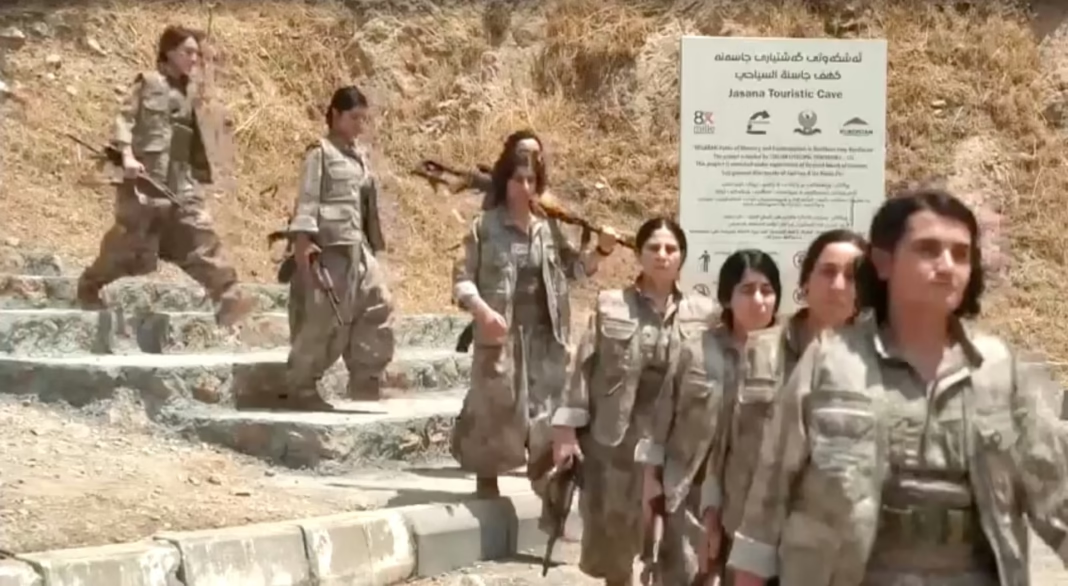In an extraordinary and symbolic move, Kurdistan Workers Party (PKK) militants burned their weapons in northern Iraq on Friday, signaling what may be the most significant step yet toward ending a decades-long insurgency that has claimed over 40,000 lives in Turkey and beyond.
The event took place near the Jasana cave in Dukan, Sulaymaniyah province—just 60 kilometers from the city center. In front of Kurdish, Turkish, and Iraqi officials, 30 PKK fighters—half of them women—lined up one by one to place their AK-47s, bandoliers, and other weapons into a large iron cauldron. As flames consumed the firearms, commanders declared a formal shift: from armed rebellion to political reintegration.
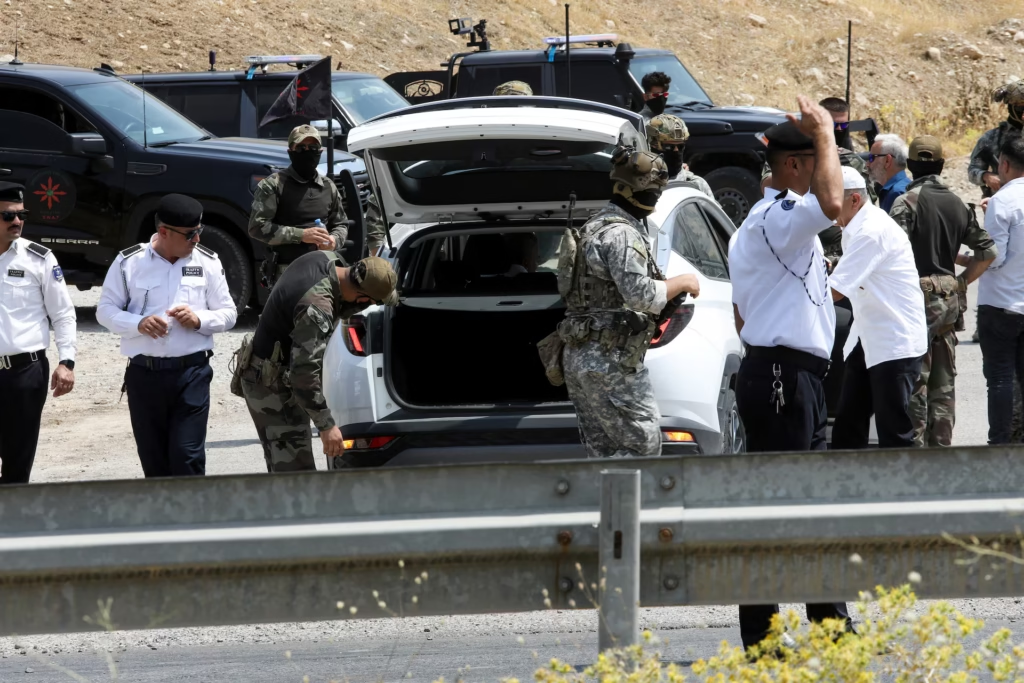
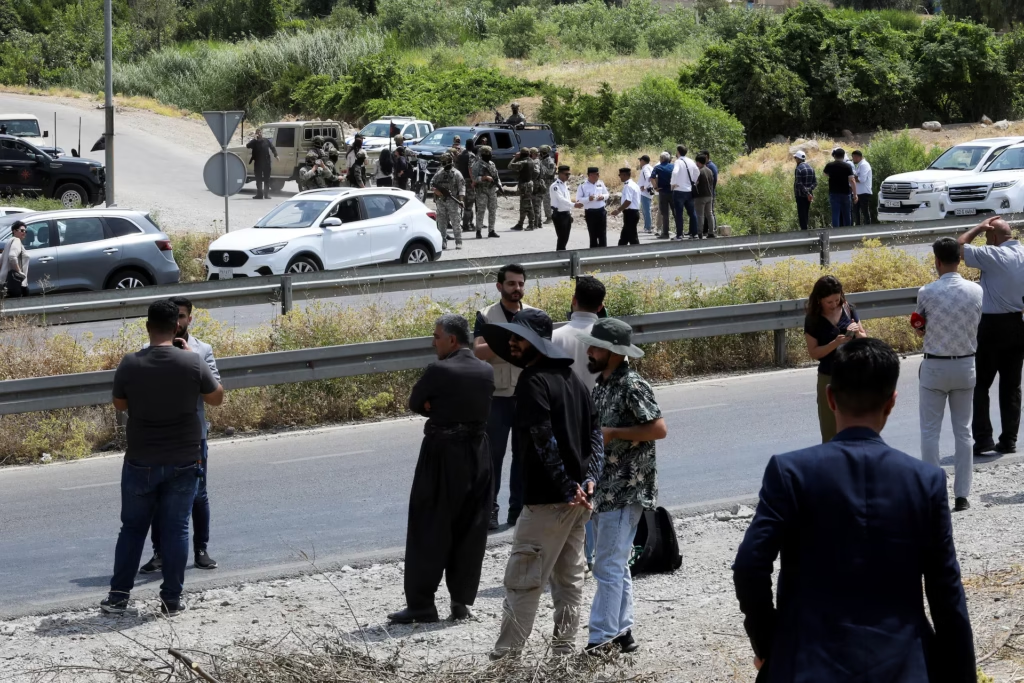
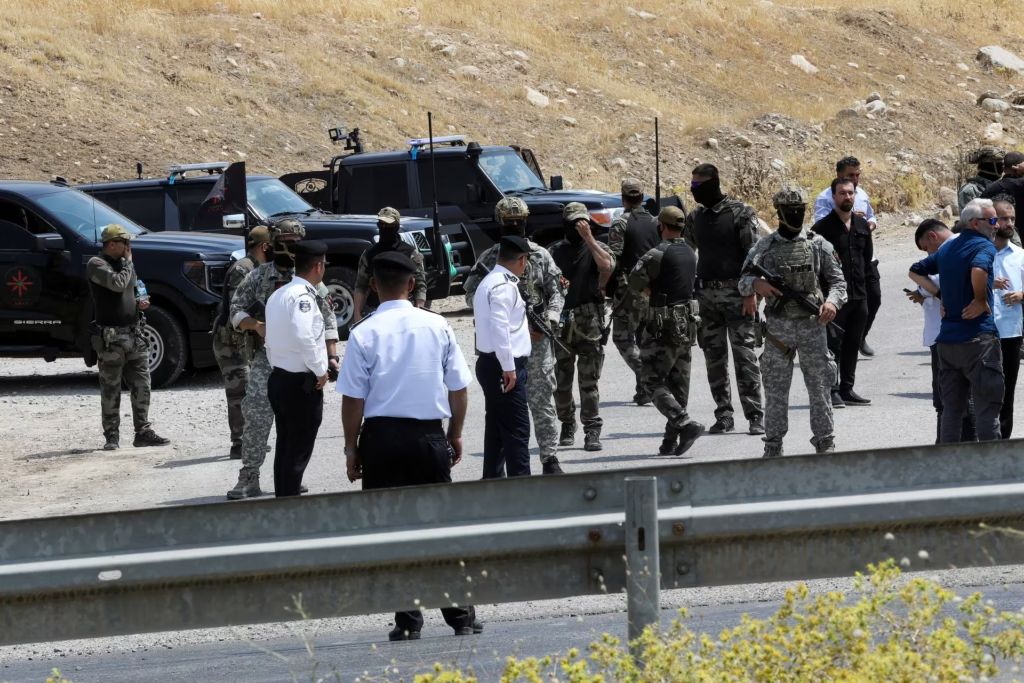
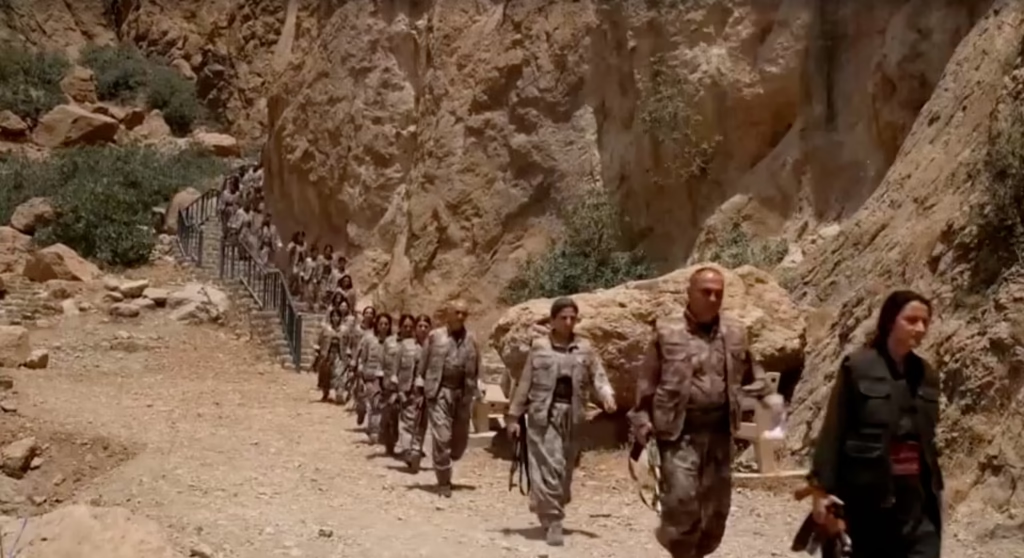
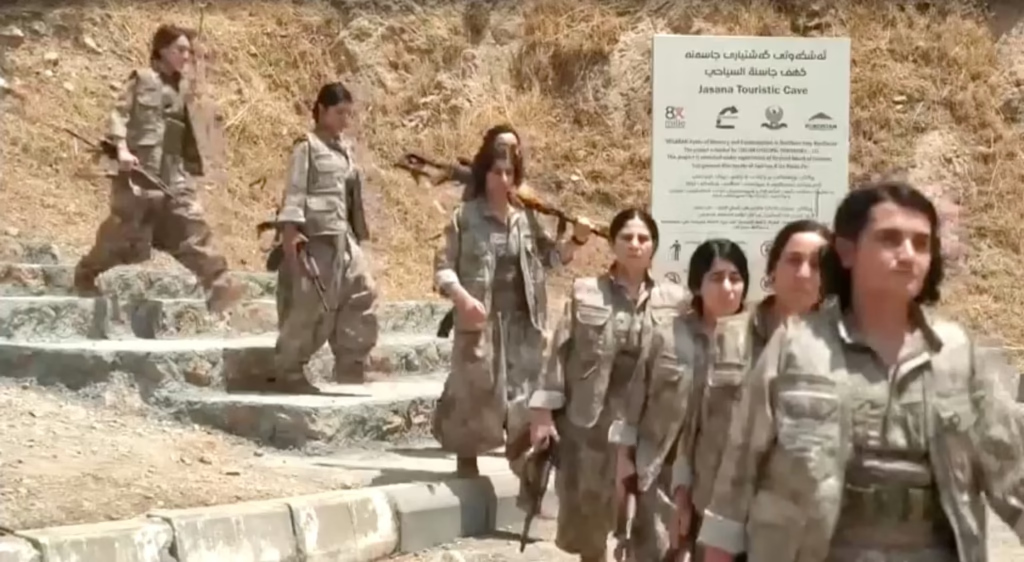
From Bullets to Words
The disarmament follows the PKK’s official announcement in May that it would disband, disarm, and end its armed struggle against the Turkish state. The move came after a renewed public call from the group’s jailed leader, Abdullah Ocalan, who urged fighters to abandon militancy in favor of political negotiation.
At the ceremony, senior PKK commander Bese Hozat, speaking in Turkish, said:
“We voluntarily destroy our weapons, in your presence, as a step of goodwill and determination.”
The same message was then delivered in Kurdish, as helicopters hovered above and dozens of Iraqi Kurdish security forces secured the mountainous area.
Erdogan: “A Terror-Free Turkey”
Turkish President Recep Tayyip Erdoğan, reacting to the event on X (formerly Twitter), said the ceremony was a hopeful sign for peace and regional stability:
“May God grant us success on this path for our country’s security, the peace of our nation, and the establishment of lasting peace in the region.”
Turkish and Iraqi intelligence officials, representatives of the Kurdistan Regional Government (KRG), and leaders from Turkey’s pro-Kurdish DEM party were also present—underscoring the broad political coordination behind this effort.
While no timeline has been announced for full disarmament or surrender, Turkish officials called the act an ‘irreversible turning point’ in the peace process. Ankara is expected to begin steps toward the legal reintegration of former PKK members, including reconciliation programs and rebuilding conflict-torn areas.
The Road to Peace—and the Road Ahead
The PKK was founded in 1978 and launched an armed insurgency in 1984, seeking greater Kurdish autonomy and rights in Turkey’s southeast. The conflict has deeply divided Turkish society, cost over $1.8 trillion, and complicated regional politics involving Iraq, Syria, and NATO allies.
The PKK remains outlawed in Turkey and classified as a terrorist group by Ankara, Washington, and the EU. Despite this, calls for political negotiation have gained traction, particularly from the DEM party and Ocalan himself, who in a rare online video this week called on the Turkish Parliament to form a commission to oversee the peace process.
Ocalan’s portrait, prominently displayed at the disarmament ceremony, was a powerful visual signal that he remains the ideological leader of the movement—even while imprisoned.
The U.S. and regional analysts suggest the PKK’s disarmament could also impact Kurdish dynamics in Syria, where U.S.-backed Kurdish forces are seen by Ankara as PKK affiliates. A complete withdrawal from armed struggle may pressure those groups to integrate more fully into Syria’s post-Assad security framework.
A Cautious but Historic First Step
Turkey’s ruling AK Party spokesman Omer Celik described the ceremony as a “first step toward a terror-free Turkey,” but added that “this process must be completed quickly and thoroughly.”
Critics warn that without legal safeguards, political inclusion, and economic development in the Kurdish-majority southeast, progress could stall again—as it has in previous peace talks.
But for now, the images from Jasana cave offer a rare glimpse of hope.
In a region long defined by violence and distrust, the sound of weapons burning in silence may just be the loudest call yet for peace.

